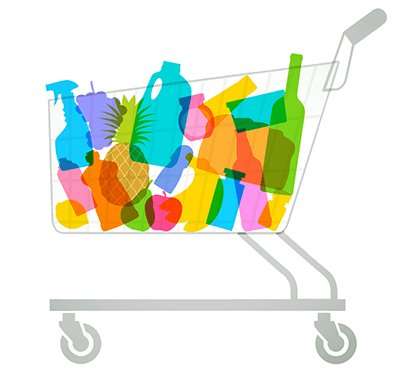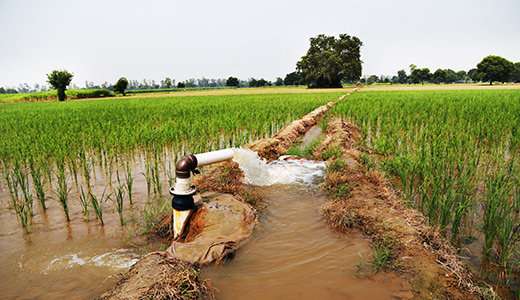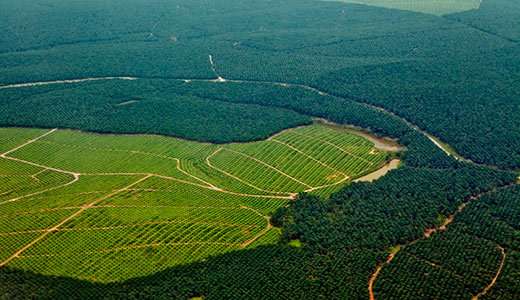Why dietary choices have an impact on global wildlife and human populations

Tropical climates in the depths of Asia, Africa or South America might seem a world away from the checkout queue in your average Scottish supermarket or corner shop. But if your basket contains chocolate, coffee, bananas or rice, you can almost guarantee that what you eat comes from far warmer places thousands of miles away.
And, as a result, your dietary and lifestyle choices will be having a real impact on people and wildlife on the other side of the planet. That doesn't mean you shouldn't be buying those foods, far from it, but it does mean that you should know how they are produced and what you can do to help reduce the risk to the environment and the economy in countries already hard-hit by climate change.
Paul Hallett at Aberdeen University, whose research on soil health in tropical regions also considers social issues that balance environmental and economic concerns, said:
"People have a perception that what they eat and buy affects the local area, and it does. But there is not a person in the UK whose diet does not have some kind of impact on tropical countries. A lot of what people here are buying comes from tropical climates with a huge amount of biodiversity, which are very susceptible to climate change, but where people also need to earn a living. What we're trying to do is balance both sides to make that shopping basket of diverse foods people buy in Scotland have a much lower impact on the environment in tropical places.

We're helping farmers in countries such as Brazil use less fertiliser or water, so that they can make more money from what they produce. At the same time, by making those improvements the soil is then also better maintained and farming produces smaller amounts of greenhouse gases, which is also better for the planet. The same approaches are being applied in Ethiopia to improve food security and in China to cut pollution."
To do that, experts have been conducting research to improve understanding of the natural environment in tropical countries, and of the needs and customs of local people.
Many tropical food crops require large amounts of things like water or fertiliser. This is expensive for small-scale farmers and can cause conflict over scarce resources like drinking water.
Scientists at Aberdeen have been investigating ways of producing crops and fruits that require fewer resources, such as growing rice with less water. It could save farmers money, but the environment also wins because increased profits would mean they'd be less likely to need to expand into protected areas. The new crops would even produce fewer greenhouse gases. Which is fantastic considering that, after livestock, rice emits more methane than anything else we grow.

Fellow Aberdeen environmental scientist Dr Yit Arn Teh said:
"You might already know about conservation issues in the tropics; for example how the orangutan's rainforest habitat has been lost to palm oil plantations in countries like Malaysia. Palm oil is in demand for a range of foods, including chocolate and some brands of oatcake. But, although a lot of production is by big business, 40% is produced by small communities. In parts of Indonesia and Malaysia smaller businesses make up over half of the trade. So there are a lot of issues around balancing people's economic needs with environmental concerns.
It's not just about palm oil, it's also about rice, bananas, coffee, cocoa beans... Consumers really can make a difference, and what they do matters. Big food chains like Unilever or Tesco are really paying attention to the fact that some customers care if their shopping is sustainable, or is having an environmental impact. These firms will then ask their suppliers to verify the ethical or sustainable nature of their products, which means that growers will then receive a fairer price for their produce. Things like Fairtrade really do make a difference."
Provided by PlanetEarth Online
This story is republished courtesy of Planet Earth online, a free, companion website to the award-winning magazine Planet Earth published and funded by the Natural Environment Research Council (NERC).





















